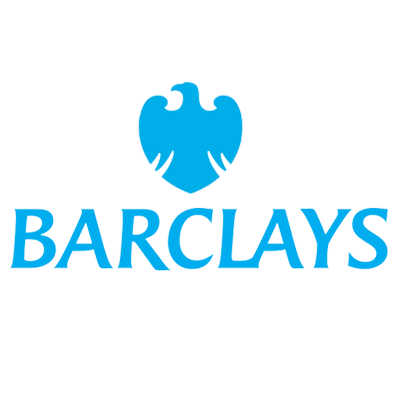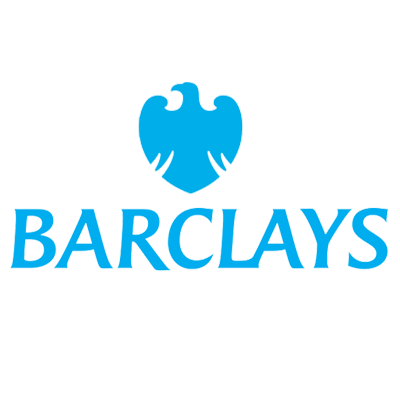Barclays Interview Questions & Answers (2026 Guide)
All products and services featured are independently selected by WikiJob. When you register or purchase through links on this page, we may earn a commission.

1. The Investment Banker - Financial Edge
Level: Intermediate
Duration: 44 hours
Price: £199.17
Financial Edge is the firm trusted by the world’s top 4 Investment Banks (as rated by the FT) to train their new analysts. Founded by ex-bankers and a team of experienced instructors, they deliver technical training programs in-house and online through their range of Wall Street-recognized certified courses.
Modules include:
- Financial Accounting Review
- Income Statements
- Earnings Per Share
- Working Capital
- Non-Current Assets
Visit The Investment Banker - Financial Edge
2. Capital Markets & Securities Analyst - CFI
Level: Intermediate
Duration: 100-150 hours
Price: $497 (Self-Study), $847 (Full Immersion)
CFI's Certified Financial Modeling & Valuation Analyst (FMVA) program is an intensive training program designed to develop the skills required for financial modeling and valuation analysis. The program covers topics such as accounting, financial modeling, valuation techniques, and financial statement analysis. The FMVA certification is recognized globally and is highly valued by employers in the finance industry. The program is delivered online and can be completed at the student's own pace. By completing this program, individuals can enhance their career prospects and improve their financial modeling and valuation skills.
Modules include:
* Introduction to Capital Markets
* Spot Foreign Exchange
* Economics for Capital Markets
* Foreign Exchange Fundamentals
* Excel Fundamentals - Formulas for Finance
Visit Capital Markets & Securities Analyst - CFI
3. Investment Banking Certification: Online - New York Institute of Finance
Level: Intermediate
Duration: 70 Hours
Price: $990.00
The Investment Banking Certification offered by the New York Institute of Finance is a comprehensive program designed to provide professionals with the knowledge and skills required to succeed in the field of investment banking. The program covers a range of topics, including financial modeling, valuation, mergers and acquisitions, and more. The certification is highly respected in the industry and can help individuals advance their careers in investment banking.
Modules include:
- Introduction to Financial Management
- Key Financial Statements
- Recording Financial Information
- Budgeting for Managers
- Analyzing and Benchmarking Financial Information~~~~
Visit Investment Banking Certification: Online - New York Institute of Finance
4. Advanced Valuation and Strategy - M&A, Private Equity, and Venture Capital via Coursera
Level: Advanced level
Duration: Approximately 16 hours
Price: Free
Coursera's Advanced Valuation and Strategy - M&A, Private Equity, and Venture Capital course provides a comprehensive overview of the finance industry's most exciting areas. The course covers topics such as valuation techniques, deal structuring, acquisition financing, and exit strategies. Students will learn how to effectively evaluate and execute mergers, acquisitions, private equity investments, and venture capital deals. The course is offered by instructors of Erasmus University Rotterdam who are experts in the field and offers practical insights and real-world examples to help students develop their skills and knowledge.
Modules include:
- Improving your decision making
- Where value comes from
- The value of flexibility
- Real options are everywhere!
- The value of strategic commitment
Visit Advanced Valuation and Strategy - M&A, Private Equity, and Venture Capital via Coursera
What Is The Barclays Recruitment Process?
Applying for a job at Barclays does not involve submitting a CV and cover letter in the traditional sense. Whilst you may have to upload a CV to apply, the company will assess your suitability for the role through a series of assessments that require you to answer interview-style questions.
The Barclays recruitment process process culminates in a face-to-face interview.
There is a four-stage application process at Barclays job application process:
- Registration of Interest
- Business Insight – Stage 1
- Business Insight – Stage 2
- Barclays Business Meeting
During the Barclays job application process, the company will assess candidates using a variety of different tests and assessments:
- Numerical reasoning tests
- Diagrammatic tests or logical reasoning tests
- Situational judgement tests
- Personality tests
- Verbal reasoning tests
- An e-tray exercise
- A case study exercise
- Video interviews and telephone interviews
- Face-to-face interviews
Questions put to the candidate during their video assessments and interviews will be largely competency-based, but there are likely to be some situational questions as well.
Depending on the job role, there could also be technical and quantitative questions.

What Is Barclays Looking for at Interview?
When you book your Barclays interview, you will be advised on the (up to) five competencies you are going to be assessed on – different jobs require different competencies.
The Barclays website holds competency guides for each level ,so it's a good idea to read through and think about how you meet the criteria.
There are six key traits that Barclays looks for in its employees:
- Teamwork
- Resilience
- Responsive Learning
- Relationship Building
- Numeracy Skills
- Critical Analysis
What are Barlcays Values?
You should also refer back to Barclays’ values when preparing for the interview process. They are:
- Respect
- Integrity
- Service
- Excellence
- Stewardship

Barclays Interview Questions and Answers
It is likely your interview will begin with a few general interview questions to get the interview off to a positive start.
These questions will be pretty straightforward so make sure you can answer them confidently during the Barclays interview process.
- Tell me about yourself
- What are your strengths?
- What are your weaknesses?
- Why should we hire you?
- What is your greatest accomplishment?
Barclays' Competency Interview Questions
A key element of the Barclays interview is competency-based questions. Competency-based questions usually start with “Tell us about a time when...” or “Give an example of…”
The Barclays competency interview questions you will be asked are all directly linked to the competencies required for the role you are interviewing for. This is why you are advised on the key competencies for the role at the point of applying.
The best way to ensure you give strong answers to Barclays competency based interview questions is to prepare. Barclays tells you which competencies you will be assessed against, so you have the luxury of time to craft the very best answers possible.
Here are some examples of competencies for an analyst role at Barclays:
- Supports colleagues with their development by offering help and support
- Actively supports change and other initiatives by encouraging others to do so
- Reprioritized own activities to respond to new information and changing requirements, while staying focused on results
Based on the above competencies, here are some examples of questions you might be asked at Barclays if interviewing for an analyst role:
- Tell me about a time you supported a colleague with their development by offering help and support
- Give an example of how you have actively embraced change in an organisation you have worked in
- Tell me about a time you reprioritised your own activities to respond to new information and a change in requirements
The Barclays competency interview questions are designed to assess whether you meet the competency criteria.
When answering Barclays competency based interview questions, you need to give some background on the situation, outline the task, go into detail about the actions you took and then finish with the result. This process is known as the STAR technique.
Think about the strongest answers you can give for each competency you are given. A good start is to look through your CV; think about the jobs you have had and see if you can think of any examples of how you fulfil the competency.
If your work history doesn’t offer up strong examples, think about your hobbies, work experience and relationships with people.
Remember:
- The interviewer is looking for what you have achieved personally, so try to use ‘I’ and not ‘we’.
- Don’t use negative examples of how someone was incompetent and you saved the day – keep things positive and show that you are professional and a team player.
- Try to get a range of examples together from different places – don’t use the same examples or ones from just a single previous role.
- To put yourself in a strong position, get a few examples together for each competency so that you have a lot of information to draw on.
Barclays-Specific Questions
As with any interview, think about the Barclays interview questions you will be asked about the role and about Barclays itself – and how you will answer them.
Examples might include:
- Why Barclays?
- Why this division?
- What do you know about this division?
- What could you bring to the role?
- What issues are currently affecting the banking industry as a whole?
- What type of research did you undertake for this role?
- How does your business area fit within Barclays?
- What issues do you think are currently affecting Barclays clients?
- What would your response be if you were asked to manage a group, and what would your approach to management be?
- Tell me about a goal you have achieved in the last three months
- What challenges face your specific division?
Barclays Situational Interview Questions
Situational questions assess your response to workplace scenarios. By studying the personal statement, job description, competencies and any other material you have been given concerning the position you are applying for, you can second-guess the types of questions you might be asked and come up with strong answers.
For example, if the personal statement has ‘willing to adapt to change’ in the ‘essential’ category, and the job description states, ‘Takes direction and reprioritises work to accommodate new requirements’, one can expect that the candidate might be asked a situational question like:
“What would you do if the objectives for the project you were working on were changed by management halfway through?”
The best way to answer a situational question is to refer to a time when it happened to you.
In the case of the example above, rather than trying to explain speculatively how you would cope with change, talk about a time when this has happened and tell the interviewer how you handled it.
If you know this kind of question is likely to come up and you have no examples to give, think along the lines of – was there a time when your sports club faced last-minute changes that affected their place in the league? How did you react? How did you motivate your team members and stop them from giving up?
Simple everyday situations can often offer excellent examples, as long as you plan your answers and their delivery.
Examples of situational questions you might be asked by Barclays:
- Tell me about a time you managed to persuade someone to take your point of view
- Tell me about a time you had to change your approach to be understood by someone else
- Tell me about a time you had to deal with a problem in a team

Relevant Business Knowledge Barclays Questions
Depending on the role you are interviewing for, there may be some specific questions which relate to the business area you are applying to:
Barclays Technical Interview Questions
Here are some examples of Barclays technical interview questions you may be asked:
- How is data stored? How does the garbage collector work? When does it get used?
- What's the difference between an abstract class and a class?
- How do you use reflection? What are the advantages of reflection? What are the disadvantages of reflection?
- What does hashCode() do?
- If I implement cloneable, what methods should I override? Why would I want to implement cloneable?
- What's the difference between an Array and an ArrayList?
- Can I call Java from C++? Can I call C++ from Java?
- How do you use threads in Java?
- How can you implement a semaphore?
- How is inheritance different in C++ and Java?
Quantitative Questions During A Barclays Interview
Sometimes quantitative questions will have a correct or incorrect answer, and sometimes the employer is just looking to see how you would approach the question. There may be a correct answer but it’s often obscure and the employer isn’t worried about you getting it right.
Here are some examples of quantitative questions you may be asked:
Question: What is the sum of the numbers from 1 to 50?
Answer: This question has a correct answer, which is 1,275.
The best way to work this out is by noticing that when you pair the first and last numbers, the second and second-to-last numbers and so on, the result is the same (1 + 50 = 51, 2 + 49 = 51, etc.)
All you then need to do is work out how many pairs there are from 1 to 50 (50 divided by 2) and then multiply that by 51.
You can do this for any consecutive number sequence by using the formula: (n / 2)(first number + last number) = sum (n= the number of integers; in this case, 50).
Question: How many Dairy Milk chocolate bars were sold in the UK last year?
Answer: This question does have a correct answer, but the employer is extremely unlikely to know it. They are more interested in how you get to an answer – the process you take and the logic you use.
For this question, you might estimate the UK population, then divide that by the key age groups consuming Dairy Milk. You might then estimate how much Dairy Milk each group consumes in a year. Adding the amounts together will give you the total amount in a year.
You could show your acknowledgement of popular chocolate days and seasons in the UK – like Valentine’s Day and Christmas.
What is important here is that you show your thought process. The interviewer wants to know how you think around a problem and is less interested in the figure that you give them at the end.
Make sure you speak your thoughts out loud when you are working through questions like this, so the interviewer can understand how you approached the problem.
Investment Banking
If relevant to your application, you may be asked specific questions about Barclays Capital and also investment banking in general:
- Why investment banking?
- How do you value a company?
- How is a merger/acquisition structured?
Questions for the Interviewers
It’s often just as important to ask questions at an interview as it is to answer them. Asking the right questions can demonstrate your interest in the company and your commitment to the role.
Here are some examples of questions you could ask at the end of your Barclays interview:
“Are there any opportunities for training and personal development in this position?”
This demonstrates personal determination, your commitment to career progression within the company and a keenness to develop your skills.
“What do you consider to be the key goals and objectives for this role in the first 12 months?”
This shows that you are aware of the impact your role can have on the company and your keenness to produce meaningful results. It also shows that you are keen to hit the ground running straight away.
“What are your goals for this department (or you could say ‘company’) in the next five years?”
By trying to establish where the company sees itself long-term, you are suggesting you intend to serve the company for at least this long. You are also demonstrating a sense of personal ambition as well as an interest in the organisation.
“How does my role fit with the organisation as a whole?”
This demonstrates your interest in the workings of the business and how your role fits within a wider context.
“Is there anything else you would like me to go into detail about?”
This shows confidence and self-awareness – you want to talk more about what you can offer and why they should hire you.
Final Thoughts
The key to a successful Barlcays interview is preparation. Often, when individuals haven’t prepared for competency-based and situational questions, they use one example for all of their answers or talk too generally.
When planning your Barclays competency interview responses, keep in mind that the employer wants to see a wealth of experience from you as an individual.
Don’t get flustered or panic if you think you have given a wrong answer. More often than not, the employer is looking for your ability to keep a cool head and use logic and your knowledge to get to an answer.
Barclays advises candidates to find out as much information about the company as they can before arriving at their interview and suggests looking at Twitter, in national newspapers, at the business press and on its (corporate) website to find out more.


